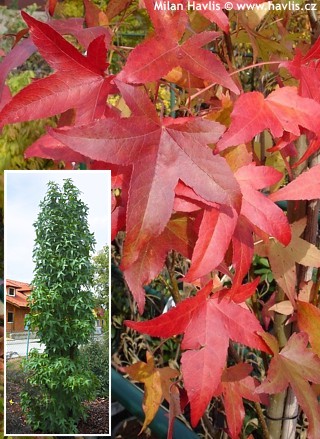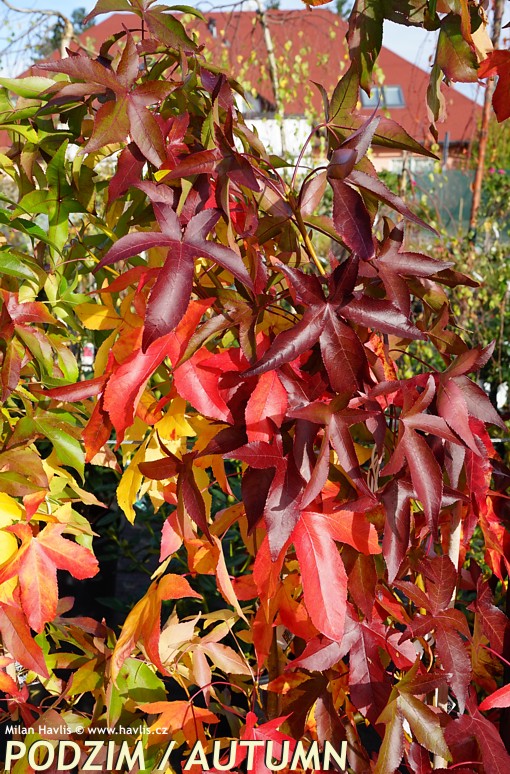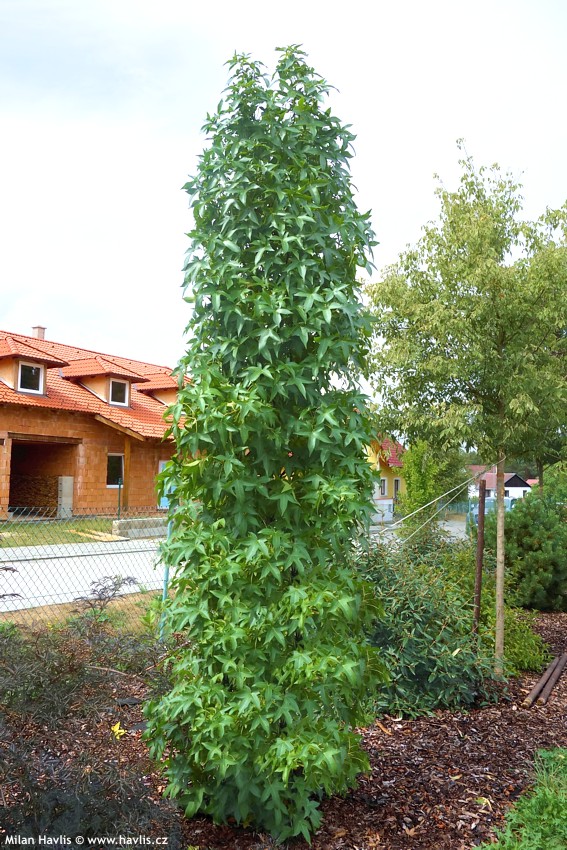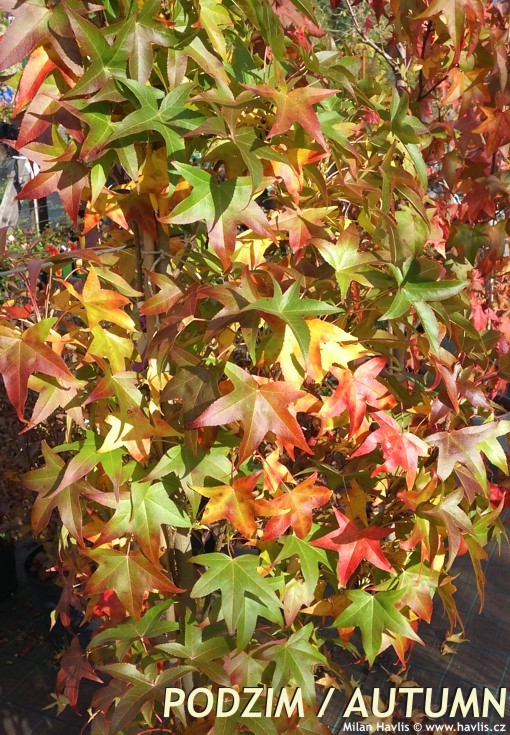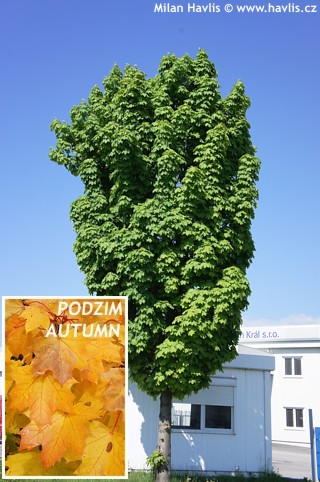Liquidambar styraciflua 'SLENDER SILHOUETTE' columnar sweetgum
Liquidambar
The genus Liquidambar includes approximately 15 species of deciduous trees naturally found in the temperate zones of North America, Central America, and Southeast Asia. The best-known species, the American sweetgum (Liquidambar styraciflua), originates from the southeastern United States, where it forms part of mixed deciduous forests. The genus was formally described by Carl Linnaeus in 1753, but the first European record of sweetgum dates back to 1615, when Spanish physician and naturalist Francisco Hernández documented it during his expedition to New Spain (Virreinato de Nueva España), a vast colonial territory of the Spanish Empire in North and Central America with its capital in Ciudad de México (present-day Mexico City). He described it as a tall tree with aromatic resin resembling liquid amber – hence the genus name liquidambar. Although fossil evidence confirms the presence of sweetgums in Europe as early as the Tertiary period, today they occur here only as introduced ornamental trees.
Sweetgums are often mistaken for maples by laypeople due to their similarly shaped, deeply lobed, palmate leaves, most commonly with five tips. What you definitely won’t confuse, however, is their scent when crushed – thanks to the tree’s signature aromatic resin, which is not only fragrant but also slightly sweet. Indigenous peoples of North America – such as the Cherokee and Choctaw – collected the resin, let it harden, and chewed it as a natural treat. Its somewhat sweet taste is what gave the tree its English name sweetgum. And when it comes to autumn foliage, sweetgums are clear winners, offering a wide range of vivid colours and holding onto their leaves longer than most other deciduous trees. In regions like New England or the Appalachian Mountains, they are among the main attractions of so-called "leaf peeping" – autumn trips to places with plentiful of autumn-coloured trees, now often organized by travel agencies. It’s the American counterpart to Japan’s momijigari tradition – just with hamburgers instead of jasmine rice.
Slender Silhouette is a beautiful sweetgum which could be your perfect choice for a small garden or a miniature front yard. A 5m tall plant seldom exceeds 1m wide. It is a slow growing version of sweetgum with strictly upright and columnar habit. The leaves are quite large, conspicuously lobed with 5 lobes. They are mid green in summer, turning golden yellow, orange and bright red in autumn. Coloured leaves remain on the tree for a long time.
Another nice feature is the fruit. Formed in about 3 cm wide spiny spheres they can be quite attractive to look at and a bit irritating when stepped on barefoot once they have hardened up, if not cleared from pavements or lawns in spring. Pruning is not necessary but if you want to keep it short do so at the end of winter before the buds burst out.
Sweet gums are soil tolerant but prefer semi-fertile, deep, and well-drained soil that should be slightly acidic to neutral and moist. Once established they can take both temporary flooding and drought. The location should be sunny as it does not tolerate shaded areas. If you buy a plant taller than say 1.5m stake it well for at least 2 years. Plants older than 3 years are fully hardy to -27°C (USDA zone 5).
Last update 07-01-2009
Goods are shipped all over Europe. For Russia and U.K. and for further details please read about SHIPPING OPTIONS HERE.
Are you interested in a serious discount for orders NOV-FEB? Check your options here.
THE PRICES INCLUDE VAT of 15%. For quick conversion you can use 1 CZK = approx. 0.04 EUR
- STANDARD QUALITY - Plants of this group are 1st class quality with number of branches and overall density adequate to their size and age, considering they were container grown.
- DE LUXE QUALITY - This label guarantees a luxurious quality of manually selected plants that, compared to their height and age, are exceptionally dense and beautiful.
- EXTRA - These plants are usually mature and bigger specimens with exceptional overall appearance.
- STANDARD (as described in the plant form) means a tree with a trunk of 190-210 cm and a crown at the top, unless specified differently. The commercial size for trees is their girth measured in the height of 1m from ground.
- HOBBY - These plants are of the same quality as our standard-quality plants but younger and therefore cheaper.
- SHRUB - a woody plant with branches growing bushy from the ground level.
- HALF-STANDARD or MINI-STANDARD - a small tree with shorter trunk, its size is usually specified.
- FEATHERED - These are trees with branches growing already from the base of the trunk and up along the stem.
- GRASSES and PERENNIALS - Sizes given usually read the diameter of the pot or the clump, as specified.


































